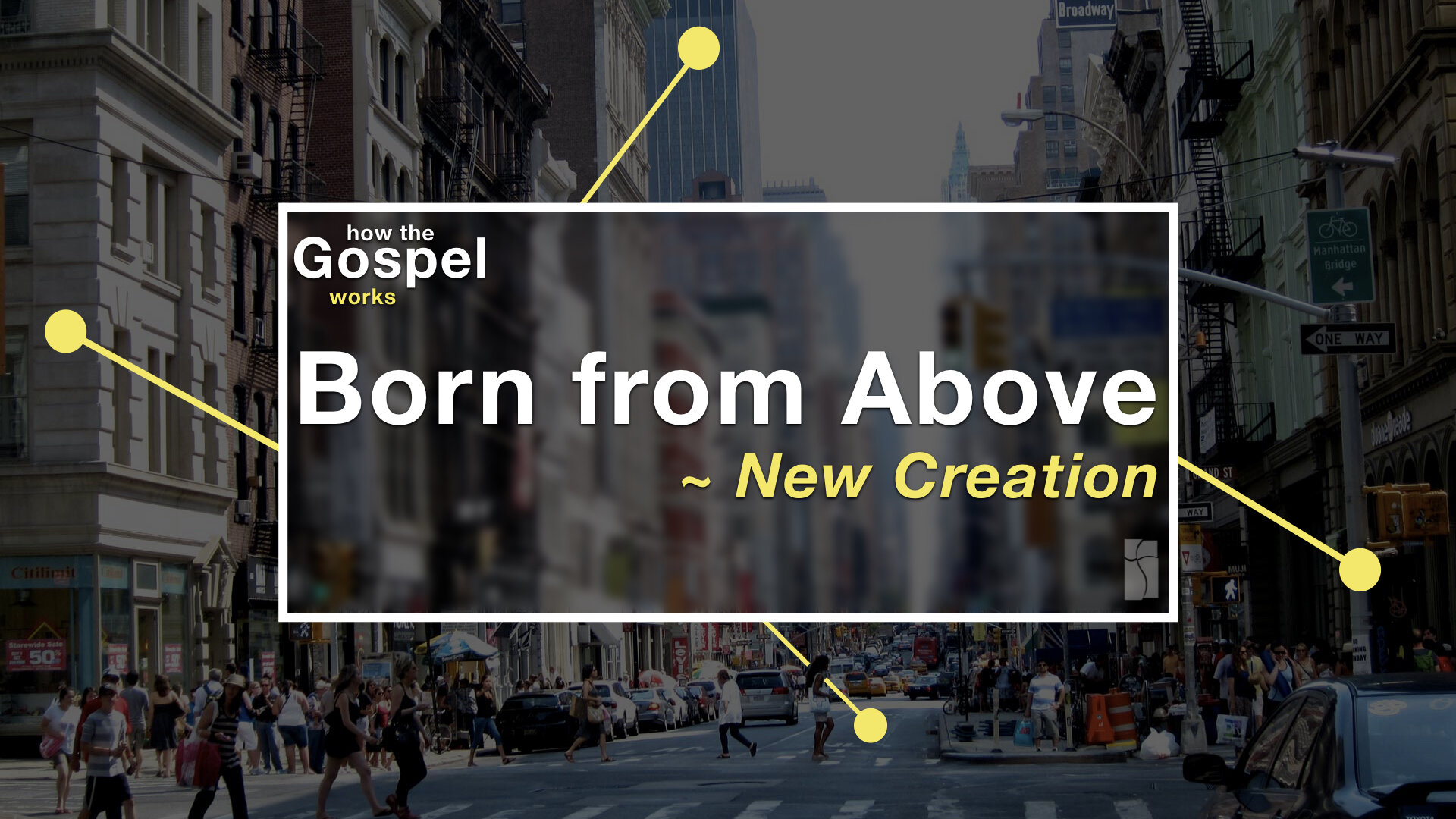Good News, Bad News, & Thanksgiving
Colossians 1:3-14
Thanksgiving that Flows from the Good News
We live in an age of irony, distancing from engagement in life. Early Christians (like Jesus) can put us off because of their lack of ironic distance. They live with a sense of joy and engagement with life even in the midst of suffering, persecution, and loss.
In the OT the word for “to thank” (yadah) means to confess/ praise – used only toward God. Recognizing God’s reality as source of life and good. Praising God in worship as in Ps.100.
In the NT, the common words for thanks and thanksgiving are closely related to the idea of “grace” – eucharistein. The experience of God’s grace announced in the Good News of Jesus’ Life-Death-Resurrection filled them with a sense of gratitude and courage for life.
Jesus was continually surrounded with human suffering and trouble – sickness, poverty, and oppression of the people; the doubt and fear of disciples.But he lived with great calm, seeing beauty, faith, hope, healing– God’s presence visible in all things and people.
Jesus’ ministry/grace climaxed in the Cross – God’s absolute love in the heart of suffering – calling disciples to life shaped by God’s self-giving love. The Cross was the end of irony. Such grace calls us a world of gratitude/charis – thanks to God in all circumstances.
Born from Above - New Creation
Born from Above – New Creation – Really?
The New Testament language about the impact of the Good News is strikingly radical. New birth. New Creation. No Jew/Greek; slave/free; male/female. Crucified with Christ. What does it mean? Paul tells the struggling Corinthians about New Creation as a fact. Jesus’ words to Nicodemus about being “born again” evolved into an Evangelical cliché that talks more of a method of conversion or testimony or even politics. What is Jesus’ challenge really about?
Nicodemus is a leading teacher, positive toward Jesus. Jesus confronts him with the “kingdom of God” that’s breaking in. The teacher must start over: birth from above. So must all. Nicodemus struggles to understand. Water and Spirit: Spirit-Wind/Breath, blowing but unseen. The Good News of God’s reign is a new, challenging reality. You have to learn from the only one who truly embodies it: Son of Man/Son of God. Lifted up in death. Giving life that extends beyond death. This is God’s reality bursting into new clarity – embodied. God’s love for the cosmos, his kingdom is here. Can I see it? It’s light. Do I really want it?
Good News in a Marketplace of Ideas
Acts 17:15-34
The Marketplace of Ideas and Reality
In a marketplace of ideas, diverse points of view are competing for attention and acceptance. People compete to promote their views. The best ideas are supposed to win most followers. We love the concept! We also see that marketplace producing specialists in selling ideas, shaping opinion, lobbying those in power. Those with most resources often win. That’s life.
“Paul in Athens” doesn’t turn out right. To be effective, shouldn’t it be a story of success? But we see few converts. Here, Paul doesn’t win the competition of ideas. Why tell the story? Paul comes to the famous heart of Greek civilization. He goes both to the Synagogue and into the Agora, center of civic and cultural life. He talks to anyone, but advocates of famous philosophies challenge him: Stoics and Epicureans, both schools more than 300 yrs old with complex teachings. Paul is superficial talking about new divinities, Jesus and the Rising. Aeschylus long ago told that Apollo ins
Good News of God’s Spirit and Community
Acts 2:36-46
The Spirit Poured Out by a Crucified Messiah
The Gospel is the announcement of what happened in Jesus! But the event of Jesus goes on! The disciples were told to wait – this is God’s work. God comes as the Spirit’s poured out.
The waiting Peter speaks: Scripture, Jesus with Cross, Resurrection, Enthronement, and Spirit. All are surprised, captured, even Disciples. But it’s Good News even for the crucifiers.
All are called to changed thinking and practice. Jesus is the Anointed One. Plunge in! God’s Spirit is given to you as never before. People respond from everywhere. 3,000 baptized.
The Spirit shapes a new community. Thousands of stories, lives to change. Devotion to several things: Teaching, learning, realizing the breadth and depth of what God has done. Shared life, a new community beginning to cross all boundaries. Breaking bread: Jesus death and life in shared meals. Prayers, a renewed relation with Abba, new hopes, needs. They realize a oneness and new reality that sees possessions in a new way, as resources to share. They flood the temple as a united group and share intimacy in scores of homes.
Good News and Boundaries of Belonging
The Spirit’s Surprise in the Spreading Good News
Jesus sent the Apostles out to make disciples of all nations (Mt 28:18-20). On Pentecost, Jews from many nations/languages were gathered in Jerusalem when the Spirit came. Acts unfolds the story as these diverse Jews respond, and God creates new community.
But there’s irony as the Apostles stay in Jerusalem when persecution comes. Greek-speaking leaders go out. The great story of the inclusion of Gentiles is Acts 10: Cornelius and Peter. We see that Peter never intended to go to foreigners, till pushed by God’s Spirit. He has to learn that God shows no partiality. God’s Spirit comes unexpectedly and pushes him.
But even earlier, Acts tells of Philip, a leader among Greek-speaking Jews. Under persecution he goes out to Samaritans alienated from Jews. People respond with joy. But surprisingly the Spirit doesn’t come. There needs to be unity across old wounds and prejudices. The Spirit waits till apostles come from Jerusalem. Jews and Samaritans are united in Jesus.
How Can a Crucifixion Be Good News?
The Mystery at the Heart of Everything
We’re exploring how the Gospel works. How God works shining into hearts in the face of Jesus. But there’s a problem. 1 Cor. reflects it. Gospel isn’t guidance, wisdom, morality. It’s a complex event that’s being announced. Something already done that changes everything. It puts you in a new place. Trust it! But what events! Crucifixion, Resurrection!
Paul knows Jesus’ cross is offensive, foolish. But it embodies God’s power, wisdom. The basics are simple, impossible things, except by God’s action, drawing humans into them. The Messiah died; for our sins, fitting scripture. He was raised, scripture, he appeared. Things unexpected, humanly impossible, vast purposes for us, new reading of scripture! Yet Paul watches the power of the event in others and experiences that power himself.
The Event that Refuses to Become a Theory
The Good News and the Gospels
Why do We have Gospels?
For some the “Gospels” are a puzzle or problem. The first “Gospel” sermon was Pentecost. The Gospel is “You’re a sinner but God loves you. Receive Jesus as Lord & Savior. Pray.” Everything is focused on a moment of decision: The “born-again” experience. The Gospels seem like preamble or back-story. Acts has conversion moments, but also long teaching.
Pagans and Jews were brought into new life, not by a minimal formula, but by encountering Jesus in stories told by teachers – God shining in our hearts in the face of Jesus.
Our Gospels reflect a process, the experience of the first generations of believers. During Jesus’ ministry, and especially after his crucifixion they told about Jesus. To remember and understand for themselves and explain to others – teaching, celebration. They discovered people transformed by the vision of God and his Kingdom in these stories.
The NT embodies this process: Jesus whole ministry happens, death (end), resurrection (reverse)! Telling the story (Acts), transformation and community (Letters). Telling the story again (Gospels). The Gospels are the voice of the whole community who had lives transformed by these accounts and told them a thousand times. What’s not here: authors, authorities & documentation. No biographical curiosity: appearance, childhood.
Four Gospels have two basic patterns Mark (with Matthew & Luke) and John. All recount situations in Jesus’ ministry but focus on Jesus’ crucifixion and resurrection.
Books of Encounter with Jesus, God’s Kingdom, and God
The Gospels all have elements of history, biography, colorful narration, & useful wisdom, but exact narration isn’t what they’re about. (Mt & Lk change events and wording in Mark.)
The Gospels were written for all of us outside the experience of Jesus’ first disciples. They help us at a distance to experience something of the fascination and delight Jesus brought to followers, but also the disorientation and challenge. The devastation of his crucifixion and explosion of his resurrection. His teaching is seen in the light of it all. They guide us to a complex, transforming encounter with Jesus for ourselves: Learners.
God shines through Jesus’ face in four Gospels – diverse, unranked. We each have to read, learn, see Jesus for ourselves together – both individual and community. Jesus is the event of God, experienced anew, interpreted, powerful, transforming in every culture. God uses these narratives in an unending disciple-making process. We participate with others.









